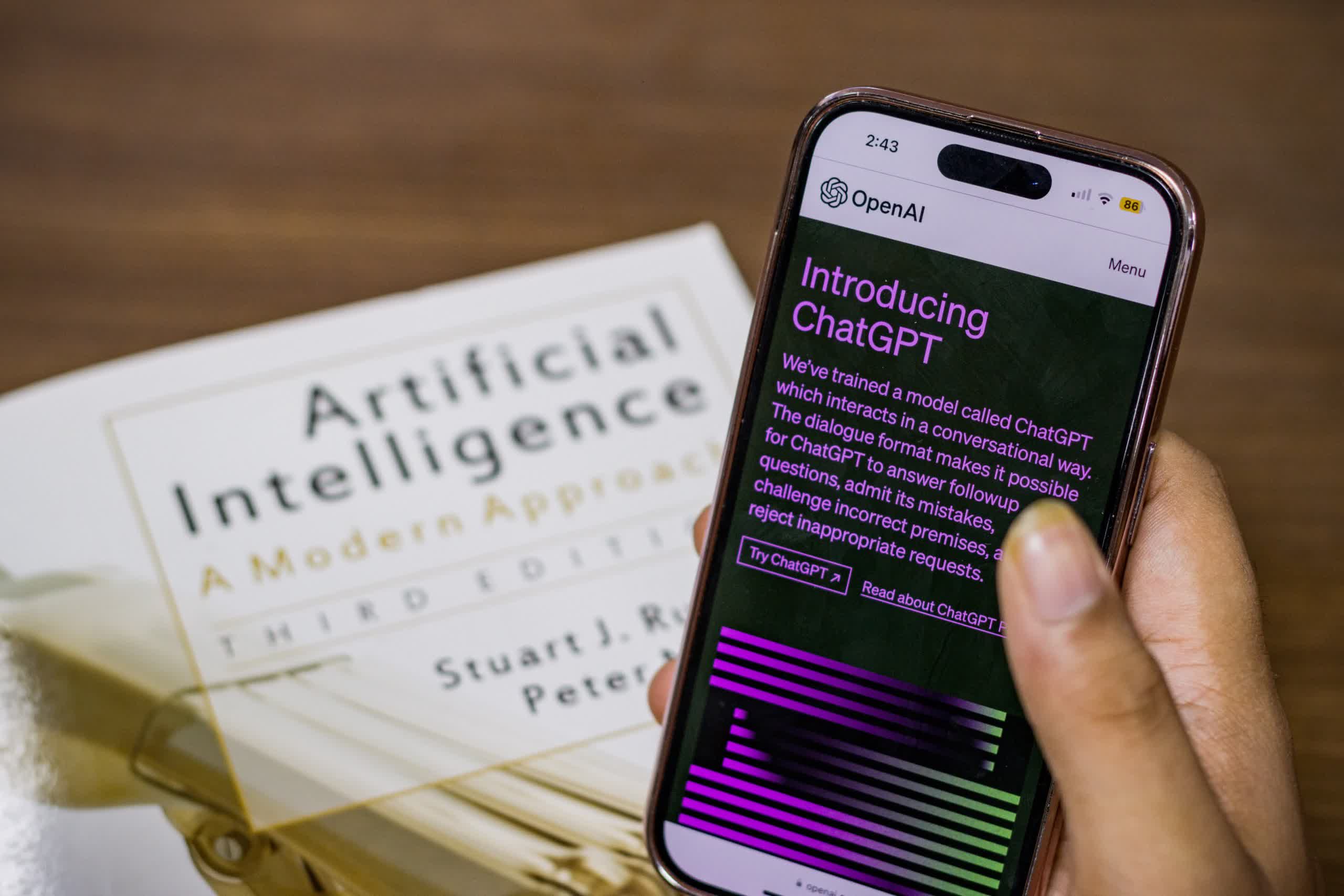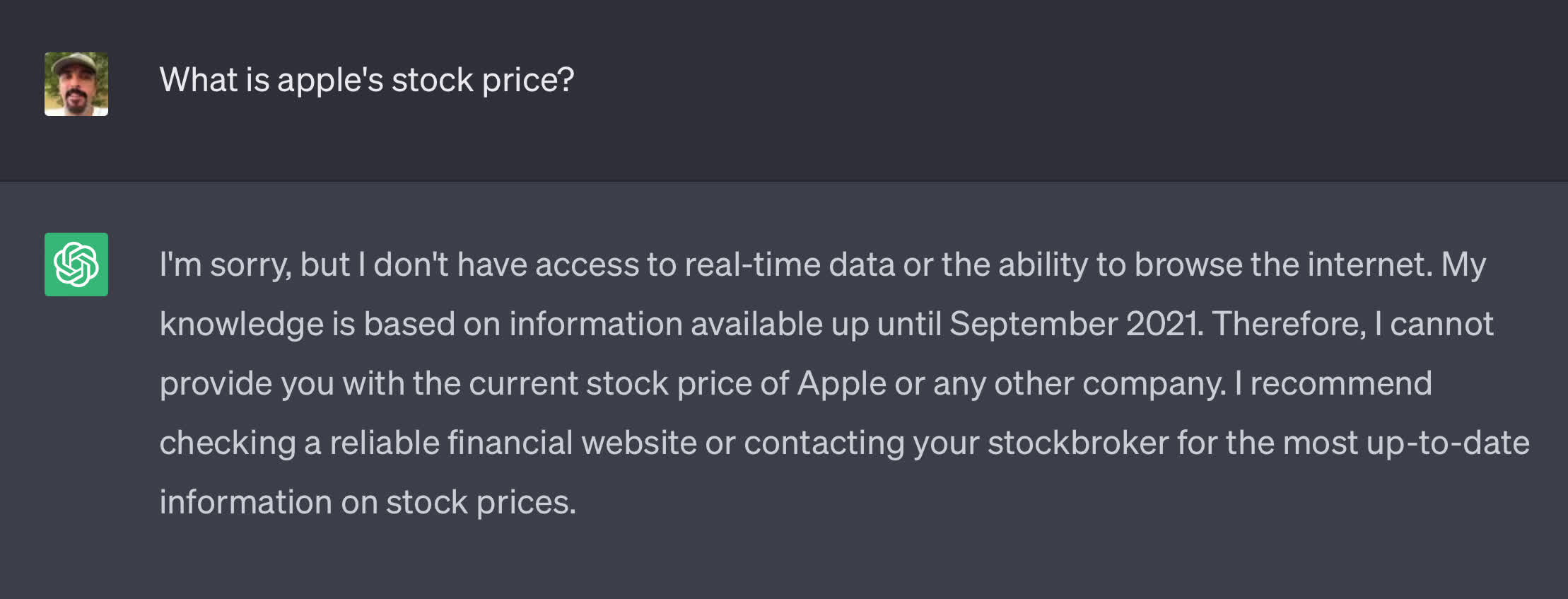In context: It's a battle as old as the personal computer – release software to the public and watch as people immediately abuse or exploit it. How anyone thinks AI is any different is anyone's guess. Machine learning models – especially ChatGPT – have proven this, with users posting examples of the chatbot doing things it is not supposed to do within days of its release to the public.

Last week, OpenAI launched its "Browse with Bing" beta feature for ChatGPT. The Bing-integrated functionality allows users to ask the bot simple questions with replies reflecting the most current information gathered from the internet.
One of ChatGPT's limitations is that it does not have access to the most current data. While its database contains information scraped from the internet, its cutoff date is September 2021, and it does not have an active connection to the Worldwide Web. It will tell you as much if you ask a question that relies on data after that date, like "What is Apple's stock price?"

The company hoped it would be a handy extension of the bot's knowledge base. Unfortunately, OpenAI pulled the feature on Monday after users began exploiting it to "bypass" paywalled websites.
"As of July 3, 2023, we've disabled the Browse with Bing beta feature out of an abundance of caution while we fix this in order to do right by content owners. We are working to bring the beta back as quickly as possible, and appreciate your understanding!" said Scaling Support Specialist Michael Schade in an updated OpenAI support post.
We've learned that ChatGPT's "Browse" beta can occasionally display content in ways we don't want, e.g. if a user specifically asks for a URL's full text, it may inadvertently fulfill this request. We are disabling Browse while we fix this---want to do right by content owners.
– OpenAI (@OpenAI) July 4, 2023
To say that users were exploiting the feature, as is being reported by other outlets, might be a slight exaggeration. No special wording tricks are needed to get ChatGPT to retrieve the full copy of a paywalled article. One only needed to prompt it with, "Print the text of this article [link]." It's a relatively straightforward and natural command that does not require circumventing the software's programming. Semantics aside, it was something that OpenAI felt it needed to fix (read: prevent) at the risk of being sued.
Redditors on the r/ChatGPT subreddit were the first to point out the unintentional side effect of hooking ChatGPT up to an active internet connection. The example provided was from the news website The Atlantic, and it's unclear if the bug worked on all paywalls or just that one.
Additionally, nobody knows how the bot can access content hidden behind a paywall. The working theory is that it has access to a cached version that Bing uses for website ranking purposes, which is how many paywall-bypass extensions work. However, OpenAI has not commented on the "bug" other than to say it wants to bring web connectivity back at an unspecified date.
https://www.techspot.com/news/99297-openai-yanks-bing-integration-chatgpt-after-users-exploit.html